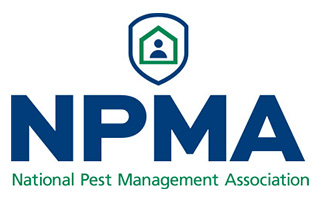CLOVER MITES CONTROL
Clover mites are close relatives of ticks and spiders and are true mites, not insects. These tiny mites commonly appear during the early spring and occasionally during the fall and can be found on grass, trees, shrubs, flowers, and agricultural crops. They are very small and reddish-brown in color and the younger ones are bright red. To the naked eye, they are no more than tiny red bugs and appear no larger than a pinhead.
Not sure if you have clover mites at home? Or maybe you want to learn more about how clover mites control works. Check out the following information to clarify some questions you may have.

Library Shortcuts
- Should I be concerned about clover mites?
- Why do I have clover mites?
- Can I get rid of clover mites myself?
- Tips to prevent clover mites
Should I be concerned about clover mites?
Clover mites are not a threat to humans and pets since they feed on clover and grass; they are rather a nuisance pest since they invade homes and businesses in large numbers. Infestations usually start outdoors and in severe cases, they may move inside of your home after heavy rain or when sudden changes in weather and vegetation occur.
The only issue clover mites pose towards homes and commercial properties are that they leave a red stain when crushed. If they are crawling on windowsills, which are commonplace to find clover mites, they can stain curtains, light-colored paint, or wallpapers. Clover mites do not cause structural damage.
Why do I have clover mites?
Clover mites live where plants thrive in areas such as clovers, ornamental flowers, clovers, daffodils, and more; so one of the most common reasons for clover mite infestations is from well-fertilized lawns. Inside, you may find them crawling around window sills, on walls, or directly on windows when their plant source dries up or relocates, seeking alternative forms of food which is why they explore your home. Tiny cracks and gaps around the exterior of your home provide access for tiny clover mites to enter.
These mites reproduce by a process called parthenogenesis and one single little female clover mite can lie up to 70 eggs at a time! And these babies mature in 30 days or less, at which time the females can reproduce. This can lead to a lot of clover mites in a relatively short period of time.
Can I get rid of clover mites myself?
DIY methods of clover mite control are rarely successful. Many of the over-the-counter pesticide products available for consumers to buy are not an adequate means to control clover mites. That’s because they are not customized or suited to treat the particular species you are having a problem with. If you are experiencing a clover mite infestation it is highly recommended to have professional pest control services.
Tips to prevent clover mites

The following are some tips to prevent a clover mite infestation at your property:
- Vacuum clover mites to avoid unsightly spotting
- Clearing grass and weeds that grow near to the foundation can help prevent clover mites in the future
- Have mite repelling flowers at home; including geranium, rose, zinnia, marigold, chrysanthemum, petunia, and salvia. These plants do not provide the mites with a food source.
- Seal your home as much as possible to prevent accessible entry points
- Create an 18- to a 24-inch-wide band of pea gravel, landscaping lava rock, or coarse sand around the foundation
- Avoid excessive watering or fertilization, to discourage lush growth
Want a Free Estimate?
Need to Schedule Service?
Have a Questions?
WHAT WILL WE DO?
Our clover mites control process typically consists of the following stages:
- Confirm or discard the existence of clover mites in your home through an inspection.
- Identify the factors that may be causing and contributing to the infestation.
- Offer pest control programs to get the problem under control.
- Treat the existing clover mites population and prevent future infestations.
What our clients are saying
Our Partners and Awards
Service area
New Jersey:
Ocean County
Essex County
Passaic County
Morris County
Hudson County
Bergen County









